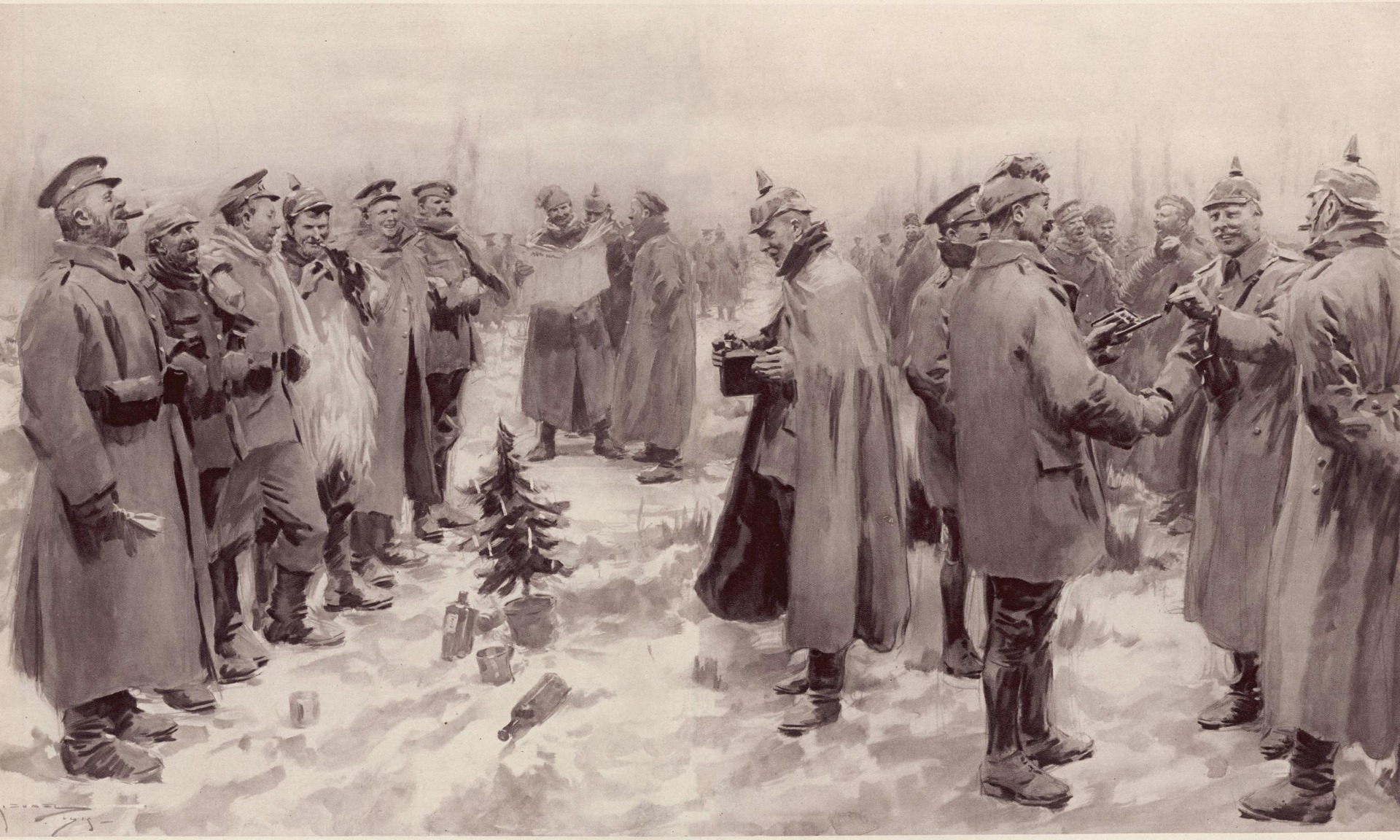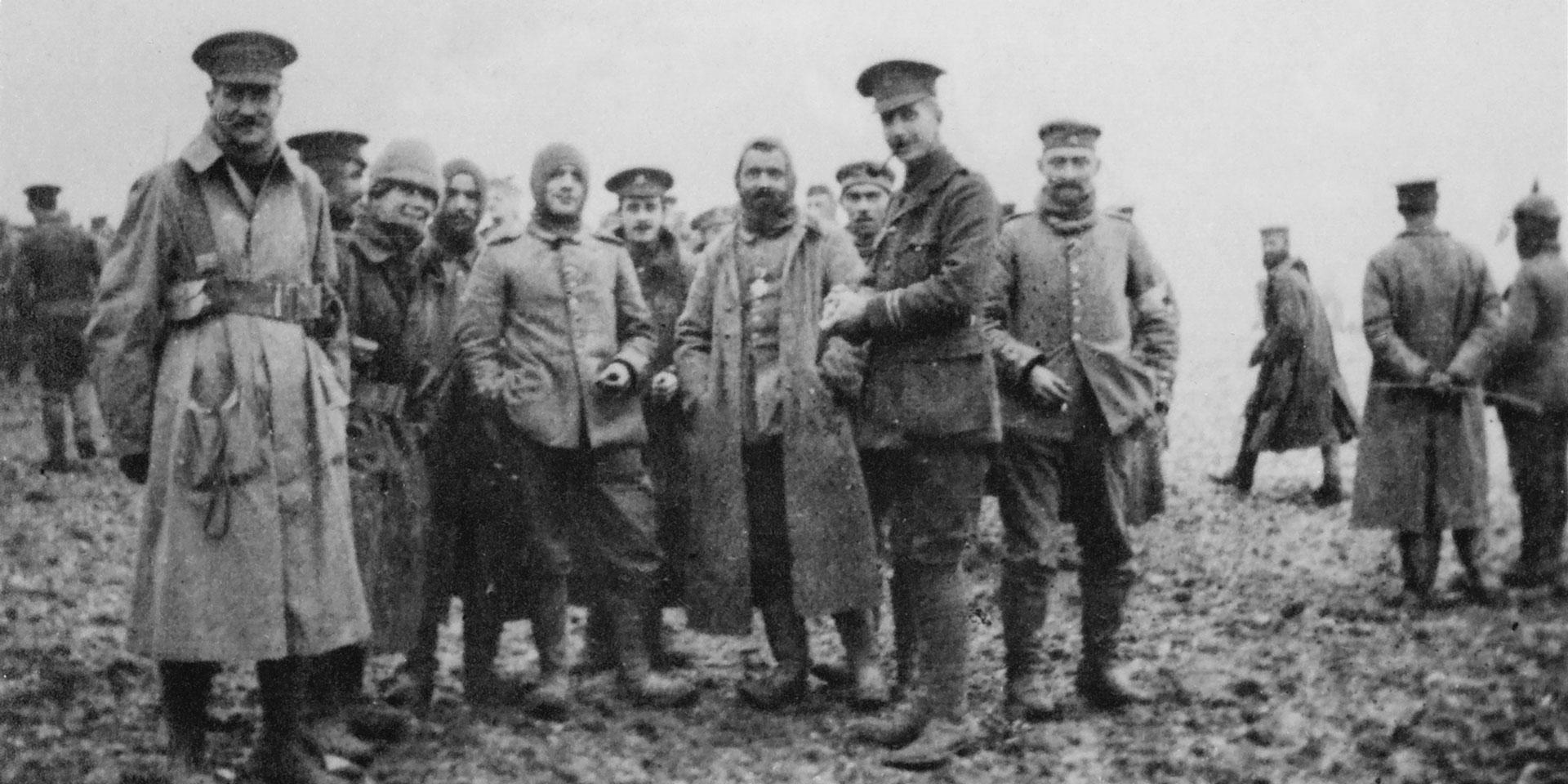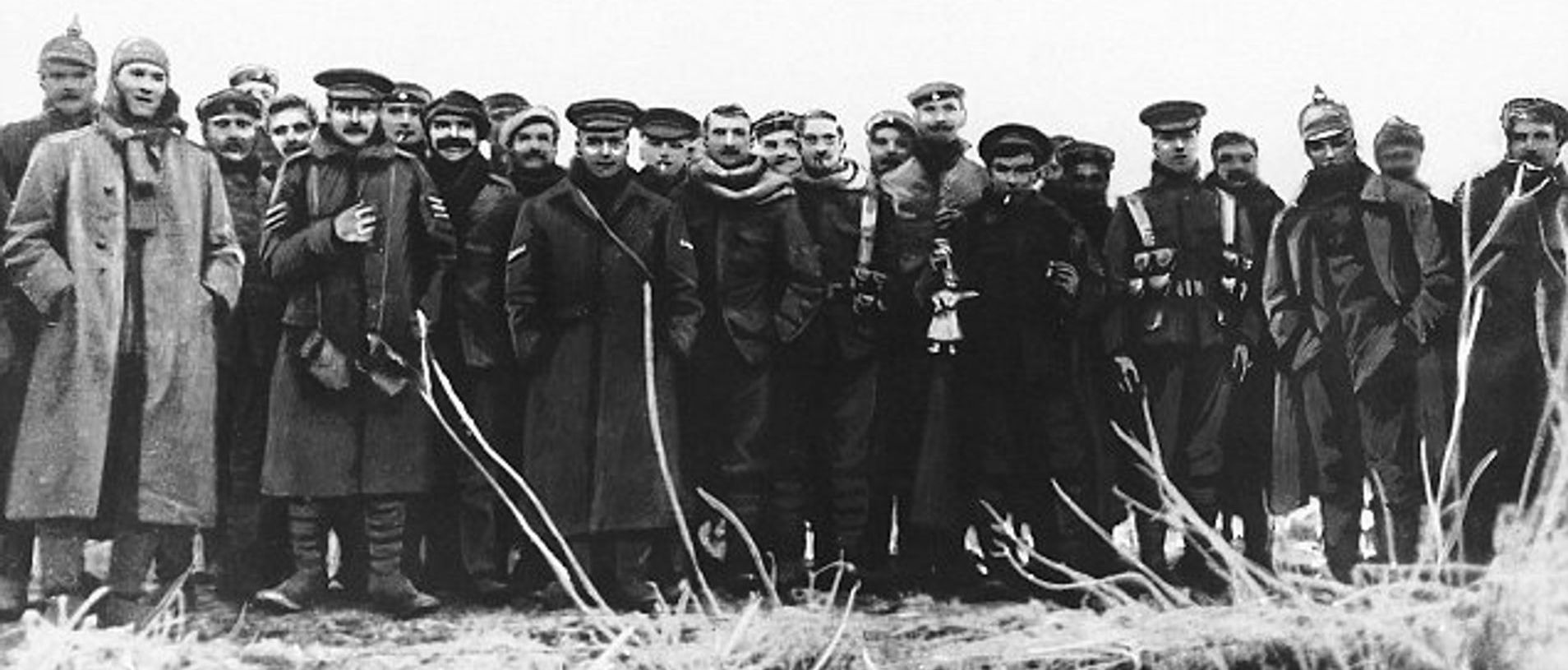Christmas Truce, 1914
Posted on 30th August 2021
By December 1914, just six months into the greatest clash of arms the world had ever seen more than a million men had already died on the Western Front. What had begun as a great German advance through northern France upon Paris had been halted and rolled back but the mobile war of the early months had long since descended into the static and deadly sterility of trench warfare.
As the first Christmas approached and with the opposing forces in some places less than 70 yards apart the Commanders on all sides became aware of the dangers of fraternisation. Just as easily as insults could be regularly exchanged so could seasonal greetings and messages of peace. Such a thing if it were to occur could set a dangerous precedent, and had to be prevented.
On 5 December 1914, General Horace Smith-Dorrien, the Commander of the British II Corps issued the order: "Friendly intercourse with the enemy, unofficial armistices, however tempting and amusing, are strictly prohibited.”
When Pope Benedict XX requested that: "All Nations cease their clash of arms while Christendom celebrates the Feast of the World's Redemption," the Germans reacted favourably to the request but Britain and France refused to comply with any unofficial cessation of hostilities.
On the evening of 24 December 1914, the guns on many sectors of the Western Front fell silent. The Germans had earlier placed small Tannenbaum Christmas Trees above their trenches, and they glistened with decorations in the fading light.
Later as the evening wore on, they could be heard singing Carols and Silent Night wafted across the desolate wastes of no-man’s-land. After every song the British would applaud and cry out for more and reciprocated with some Carols of their own.
But the war had not ceased, on Christmas Eve 98 British soldiers were killed, mostly by sniper fire.
On the Armentieres sector of the front as the sun rose on a crisp but bright Christmas Day morning something extraordinary happened. It was described by an Officer of the Gordon Highlanders:
"The men were having breakfast when a cry went up that the Germans had left their trenches. Springing to arms they could scarcely believe their eyes when they looked over the parapet and saw a number of the enemy standing in the open in front of their trenches, all unarmed. Some of the enemy shouted No Shoot! After a while a number of our men left the trench and began to walk toward them." On another sector a small group of German Officers approached a British trench. They were met in no-man’s-land by the British Officer in charge with whom they shook hands and greeted with the words, said in perfect English, "We thought it was only right and proper to wish you all a very Merry Christmas.”

Such incidents were occurring all up and down the Front Line, sometimes they were the result of negotiated agreements that allowed both sides to collect their dead from no-man’s-land in other places the firing simply ceased.
Elsewhere, British and German troops openly fraternised swapping gifts and exchanging addresses, they also shared coffee and cigarettes and some British Officers allowed themselves to be photographed standing alongside their German counterparts.
A football was provided by a Highlander and in the ensuing match, properly officiated, the Germans won 3-2.
But the war continued, and on Christmas Day 81 British soldiers were killed.

On Boxing Day the British and German troops again met in no-man’s-land and agreed not to fire upon one another but when Staff Officers visited the front later in the day they were shocked by the calm and quiet and they ordered that the firing recommence immediately. It did, but both sides deliberately fired above the heads of the other.
Even so, on Boxing Day a further 62 British soldiers were killed.
This unofficial truce lasted in some places until 3 January 1915 when the Commander of the British Expeditionary Force Sir John French found out about it and exploded in fury. He wrote in his memoirs: "I issued immediate orders to prevent any recurrence of such conduct, and called the local Commanders to strict account."
German Units that were known to have fraternised with the enemy were transferred to the Eastern Front. Their Officers were accused of being cowards and in some cases, they were court-martialled and cashiered out of the service or demoted. The response of the English and French was just as firm but more muted, it being thought better not to dwell on it should it ever happen again.
The war was ordered to recommence but neither side fired until a time agreed by both sides.
The Christmas Truce was over, but it had been a brief moment of sanity in that most insane of wars.
Share this post:





